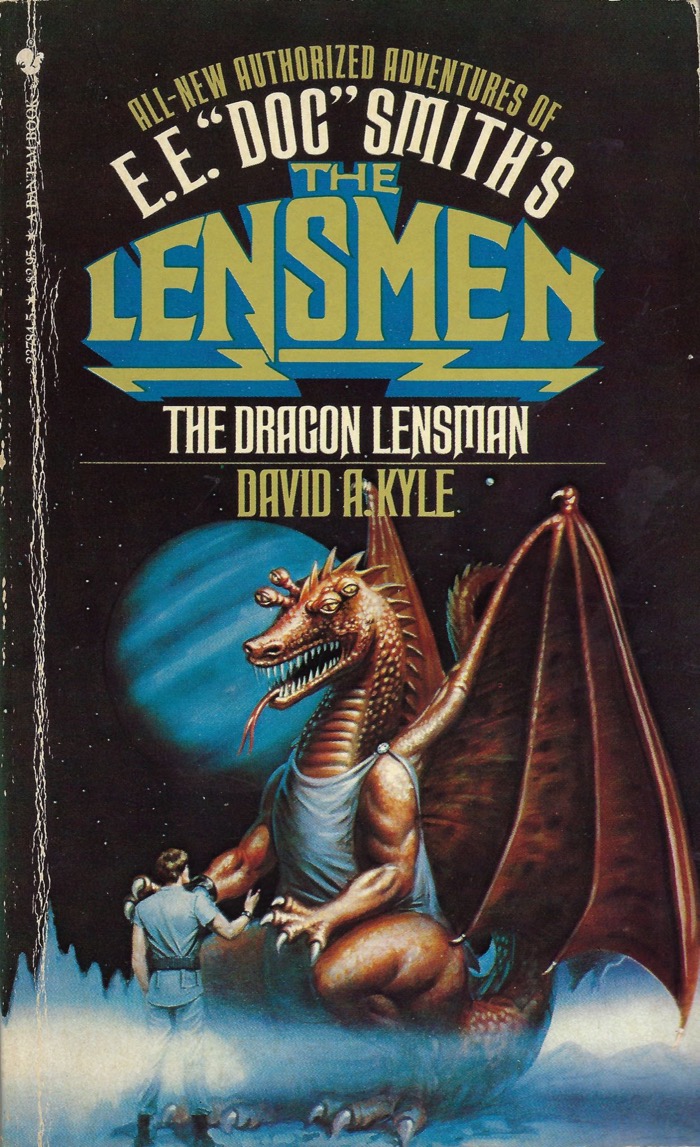The Dragon Lensman
Series: Authorized Lensman Trilogy 1
Reviewed date: 2006 Apr 15
Rating: 3
176 pages
"Doc" Smith wrote only seven Lensman books, but his estate authorized David A. Kyle to write three additional novels. The stories are set in the time period between Second Stage Lensmen and Children of the Lens, and each focuses on one of the three non-human second stage Lensmen. The Dragon Lensman is Worsel's tale.
Worsel pays a visit to the Velantian Planetoid of Knowledge (Pok). Pok, as it is called, is a large asteroid housing a combination library/museum, filled with various collections of arcane knowledge and historical artifacts. On Pok, Worsel triggers an unsettling development: a roomful of robots, previously dormant, comes to life in a paroxysm of violence. While Worsel suppresses this robot insurrection, he becomes aware of another, even more grave, threat: a traitor Lensman! Worsel, with help from Kinnison and Lensmen Kalla Kallatra and Deuce O'Sx, must fight the robots while also tracking down and eliminating the mysterious Lensman traitor.
David A. Kyle's writing will never be mistaken for "Doc" Smith's, but Kyle has managed to write in a style that, while distinctly his own, does a good job of reminding the reader of Smith's writing. The plot doesn't quite ring true to me, though. For one thing, the story hinges on the existence of robots. Robots are not something Smith wrote about; the only mention of robots in the Lensman series is a one sentence offhand remark in Second Stage Lensmen. (The Patrol ships lost in the defense of Tellus were "automatics, manned by robots.") Robots, then, are simply not Smithian. Nor, in truth, are they well-written; the dullest of Asimov's robots far surpasses Kyle's most interesting machine intelligences.
The other main plot point is the possibility of a traitor Lensman, the malignant mind who causes at least one Lensman to go mad. I don't believe this plot thread is resolved well; or at least I found the entire thing wholly unconvincing.
Overall not worth reading in its own right. It gives no insight into the character of Worsel beyond what is already present in Smith's works, the story is only passably interesting, and the plot doesn't mesh well with the established Lensman universe. However, there are two sequels: Lensman from Rigel and Z-Lensman, which (from what I gather) continue the story begun in Dragon Lensman. Taken as a whole, the trilogy might be worthwhile reading--but as I have not read them, I cannot say with certainty.
